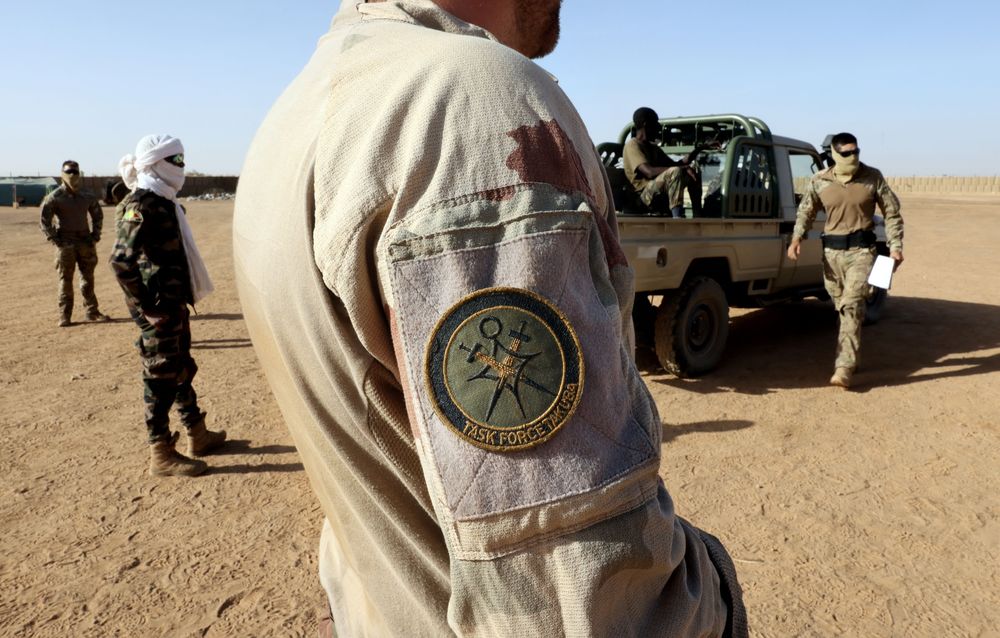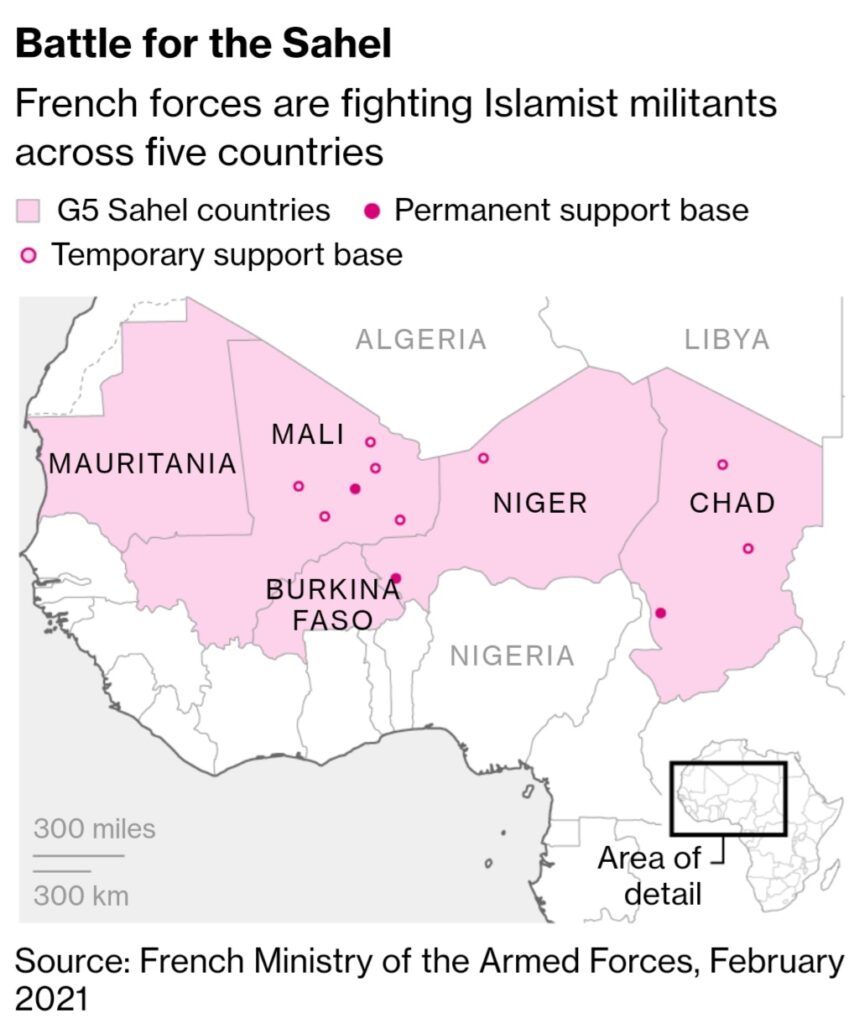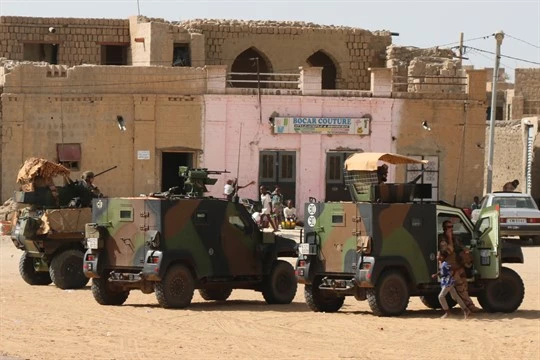By Samy Adghirni , Chiara Albanese , and Katarina Hoije
Macron’s officials are lobbying allies to quit the West African country; their departure would increase pressure on its military government.
President Emmanuel Macron is drawing up plans to withdraw French forces in Mali amid deteriorating ties with the local junta, and wants his European allies to do the same.
French diplomats are lobbying European Union countries to pull out troops and military equipment sent to Mali as part of a multinational European presence called Takuba, which fights Islamists alongside forces from West Africa, according to two European officials familiar with the matter. They are also pushing allies to quit the EU training mission that advises the Malian army.
Paris argues the situation has become untenable since Mali’s military government, which took power after a coup in May 2021, allowed the deployment of several hundred members of a private Russian force, sought to postpone a return to democracy and reviewed bilateral military agreements. The proposal could pressure Malian authorities to re-engage and result in its European allies taking on more responsibility.
Macron risks harming efforts to contain extremists across the region, though. While Takuba’s focus would shift to another nation, Mali is geographically best situated for operations because it’s at the center of an insurgency that spans several countries.
The diplomats have been telling partners that France wants a joint exit as soon as possible, the officials said. Paris is assessing whether it can leave unilaterally without other countries following.
Spanish Defense Minister Margarita Robles has said that the European presence in Mali is essential to avoid “a disaster” similar to the one in Afghanistan and that a hasty exit would benefit Russian interests.
Read more: How Jihadists Are Creating Turmoil Across West Africa

The French ministry of foreign affairs didn’t respond to questions, and referred instead to Foreign Minister Jean-Yves Le Drian’s statement to lawmakers that we “cannot continue like this.” Le Drian also said mercenaries from the Russian Wagner group, which is headed by a confidant of President Vladimir Putin, have become Mali’s only partner.
Mali denies any deployment of mercenaries and says they are Russian military instructors. Russia says its government has nothing to do with the force.
Macron has been trying to recalibrate France’s role in the Sahel for more than a year, with plans to scale back his country’s largest and most expensive overseas operation by half. The idea being that European partners will take on more responsibility.The latest in global politicsGet insight from reporters around the world in the Balance of Power newsletter.EmailSign UpBloomberg may send me offers and promotions.By submitting my information, I agree to the Privacy Policy and Terms of Service.
That fits into Macron’s push for a more ambitious European foreign, security and defense policy that could operate independently of the U.S., including an army that could be deployed for crisis missions. But a mixed response to the lobbying over Mali points up differences within the EU and raises fresh questions over how feasible any of that is. EU tensions relating to the standoff over Ukraine are another sign of the problem.

Some 5,000 French troops are deployed across the Sahel — they were widely hailed as liberators when they arrived in Mali in 2013, but are now viewed with skepticism, and sometimes hostility. EU forces arrived that same year. Despite some success, violence has grown and spilled across borders, with Islamic State among groups that have carved out a foothold in the region, the world’s poorest.
The Malian junta expelled the French ambassador on Jan. 31 and has asked Danish forces to leave. Still, the military government, under sanctions by neighboring countries, may be vulnerable to pressure because it would be more isolated and the terrorist threat it faces is poised to grow after weak governments were also brought down by coups in Chad and Burkina Faso.
Battle for the Sahel
French forces are fighting Islamist militants across five countries.

Smaller European countries are more eager to pull out of the West African nation, while bigger ones are more reluctant, one of the officials said.
Denmark has announced it is leaving soon. Germany is divided and sending mixed signals, while Italy and Spain, which are on the front lines of migration flows, see the mission as crucial and want to stay, according to the officials.
Takuba counts as many as 800 soldiers, most of whom are French, but forces from countries like Estonia and Czech Republic also take part. Some 22 EU states participate in the training mission.
— With assistance by Alonso Soto, and Mark Williams
Credit | Bloomberg

